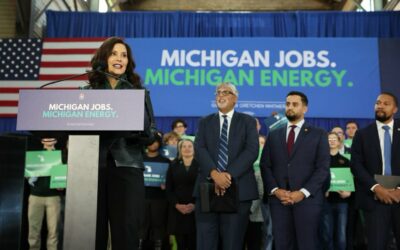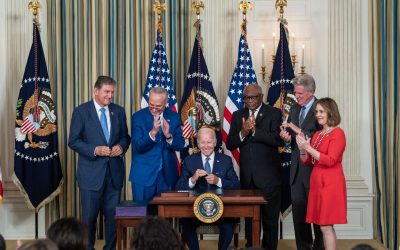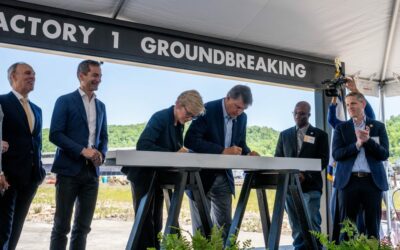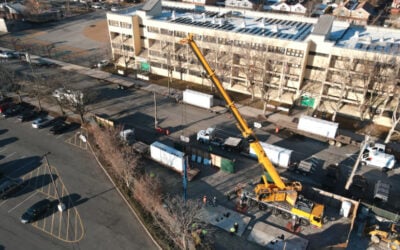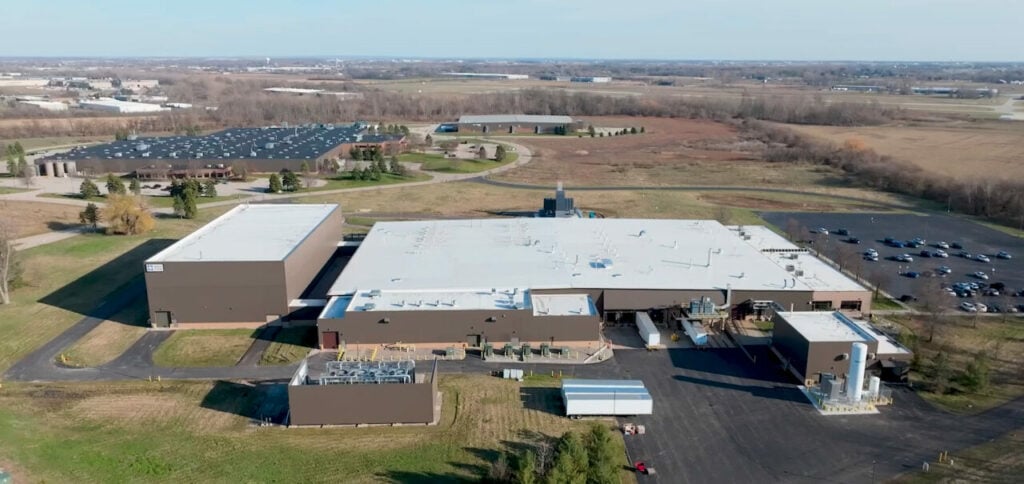
Natron Energy has started commercial-scale operations at its sodium-ion battery manufacturing plant in Michigan, US, and elaborated on how its technology compares to lithium-ion in answers provided to Energy-Storage.news.
At full capacity the facility will produce 600MW of Natron’s ‘Prussian Blue’ electrode batteries primarily for the stationary energy storage system (ESS) market annually. At first it will mainly ship products to data centres starting in June, before expanding to industrial mobility, EV fast charging and telecommunications, among others.
Enjoy 12 months of exclusive analysis
- Regular insight and analysis of the industry’s biggest developments
- In-depth interviews with the industry’s leading figures
- Annual digital subscription to the PV Tech Power journal
- Discounts on Solar Media’s portfolio of events, in-person and virtual
Or continue reading this article for free
That is why it has given its production capacity as MW power figure and not the MWh capacity that battery manufacturers typically do, as it is primarily targeting power-intensive applications, a spokesperson said.
The Michigan facility was originally a lithium-ion factory belonging to technology firm Clarios but Natron Energy has refitted the site to manufacture its sodium-ion battery technology, following a strategic partnership between the two companies in May 2022.
Natron invested US$40 million in the retrofit, half of which was contributed by US government agency Advanced Research Projects Agency-Energy (ARPA-E), which is highly active in the energy storage technology space.
Sodium-ion battery technology is seen by many as the one most well-placed to compete with lithium-ion for short-duration ESS applications as well as EV batteries. European gigafactory firm Northvolt is begging big on it.
Will be ‘competitively priced’ with other chemistries
Proponents of sodium-ion battery technology highlight that it is one of the most straightforward technologies to lithium-ion which can be ‘dropped in’ to the industry incumbent chemistry’s manufacturing processes.
Natron’s current listed products are the 48V-480V BluePack, its 25kW-MW+ BlueRack Battery Cabinet and the BueTray 4000 rack-mounted battery pack.
We asked the firm how its products are priced relative to lithium-ion, the most commonly deployed battery chemistry for large-scale ESS applications. Although note that for data centre backup power and other similar applications other chemistries like zinc and lead-acid are popular too.
Natron Energy’s spokesperson said in response: “Because sodium-ion batteries use lower cost, more accessible minerals, our pricing is and will continue to be competitive with other chemistries as we scale. Sodium is abundant and cheap. Our core technology uses no rare or exotic metals, no lithium and no cobalt, which are largely sourced outside of the US.”
The company should also benefit from the US$35 per kWh 45X manufacturing tax credit under the Inflation Reduction Act although did not mention this in its announcement.
‘Over 50,000 cycle-life, zero-strain cycling and no fire risk’
The company said its sodium-ion battery technology’s fast charging and discharging and no-fire-risk made the data centre segment the first logical application.
“Data centres rely on backup power systems, and those systems only work with proper batteries to supply power ‘right now’ when there is a power outage or power anomaly. The increase of AI loads has changed the landscape of data center critical power requirements and high power, high cycle battery solutions are now more important than ever,” they said.
“Able to provide 100% of its rated power over a two-minute discharge period, and even more than 100% under two minutes, Natron’s sodium-ion batteries can also be rapidly recharged and are available immediately and without need for any thermal settling or cooling.”
The thermal management requirements of lithium-ion and nickel-zinc chemistries requires cooling time, cooling systems that have risk of single points of failure and overall decreases reliability.
The company also claimed that its battery presents ‘zero strain during charging and discharge’, alongside 10x faster cycling than lithium-ion and an ‘over 50,000-cycle life’. Its response to Energy-Storage.news‘ question regarding this claim indicates that ‘zero strain’ does not quite mean ‘zero degradation’, however.
“The atoms in our Prussian blue particles are arranged in large, cubic cages with empty spaces (pores) between them. Since the pores in Prussian blue are larger than sodium ions, they are able to rapidly absorb and release those ions in a process called intercalation. This rapid intercalation is the key benefit of Natron’s sodium-ion battery technology and sets it apart from other conventional storage materials found in lithium-ion and lead acid cells,” they said.
“The Prussian blue structure also does not expand and contract as it charges and discharges sodium ions. This ‘zero strain’ mechanism means greater chemical stability and less particle degradation that limits cycle life in other batteries.”
Natron Energy’s investors include United Airlines, Swiss multinational automation hardware company ABB, oil and gas major Chevron as well as investment firms including Khosla Ventures and Fluxus Ventures.
In late 2022, it was in talks to supply its battery tech to a hybrid concentrated solar power (CSP) and PV plant in Australia for project developer Vast Solar.
In a recent quarterly report on corporate funding and M&A activity in the energy storage sector, research firm Mercom Capital said that Natron was the single-biggest recipient of venture capital (VC) funding in the energy storage space in the first quarter of this year, with US$189 million investment secured in January.
Energy-Storage.news’ publisher Solar Media will host the 1st Energy Storage Summit Australia, on 21-22 May 2024 in Sydney, NSW. Featuring a packed programme of panels, presentations and fireside chats from industry leaders focusing on accelerating the market for energy storage across the country. For more information, go to the website.


